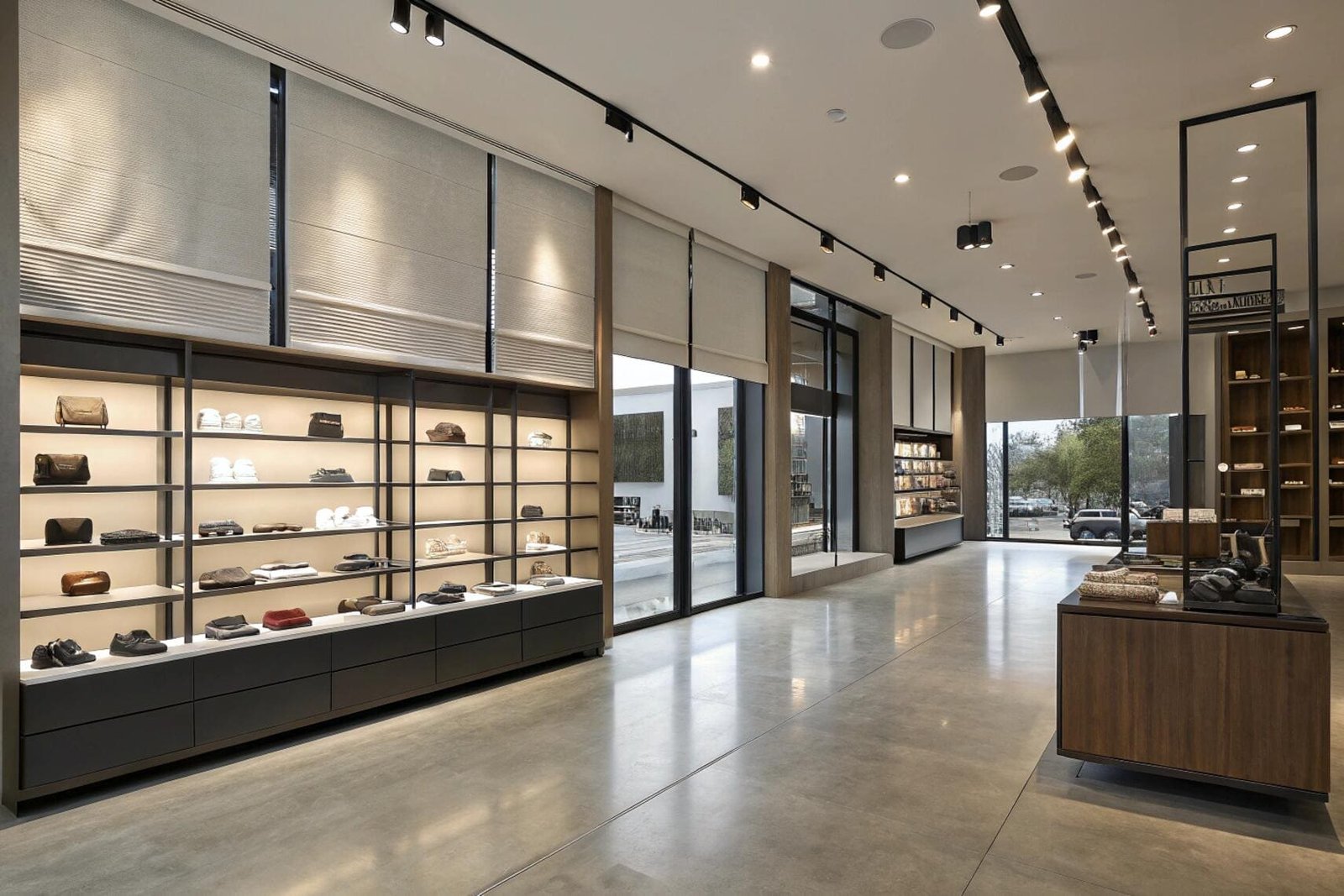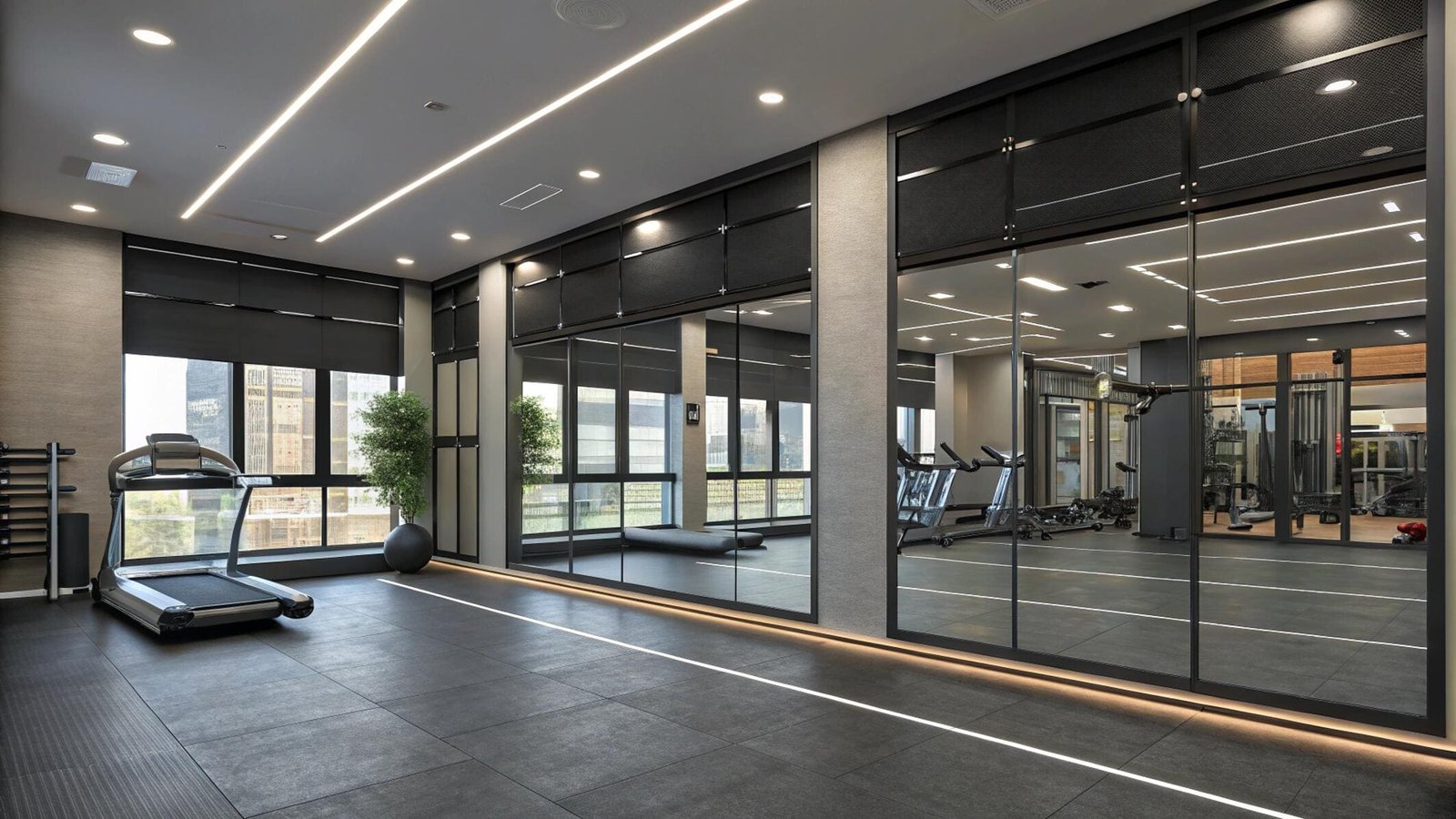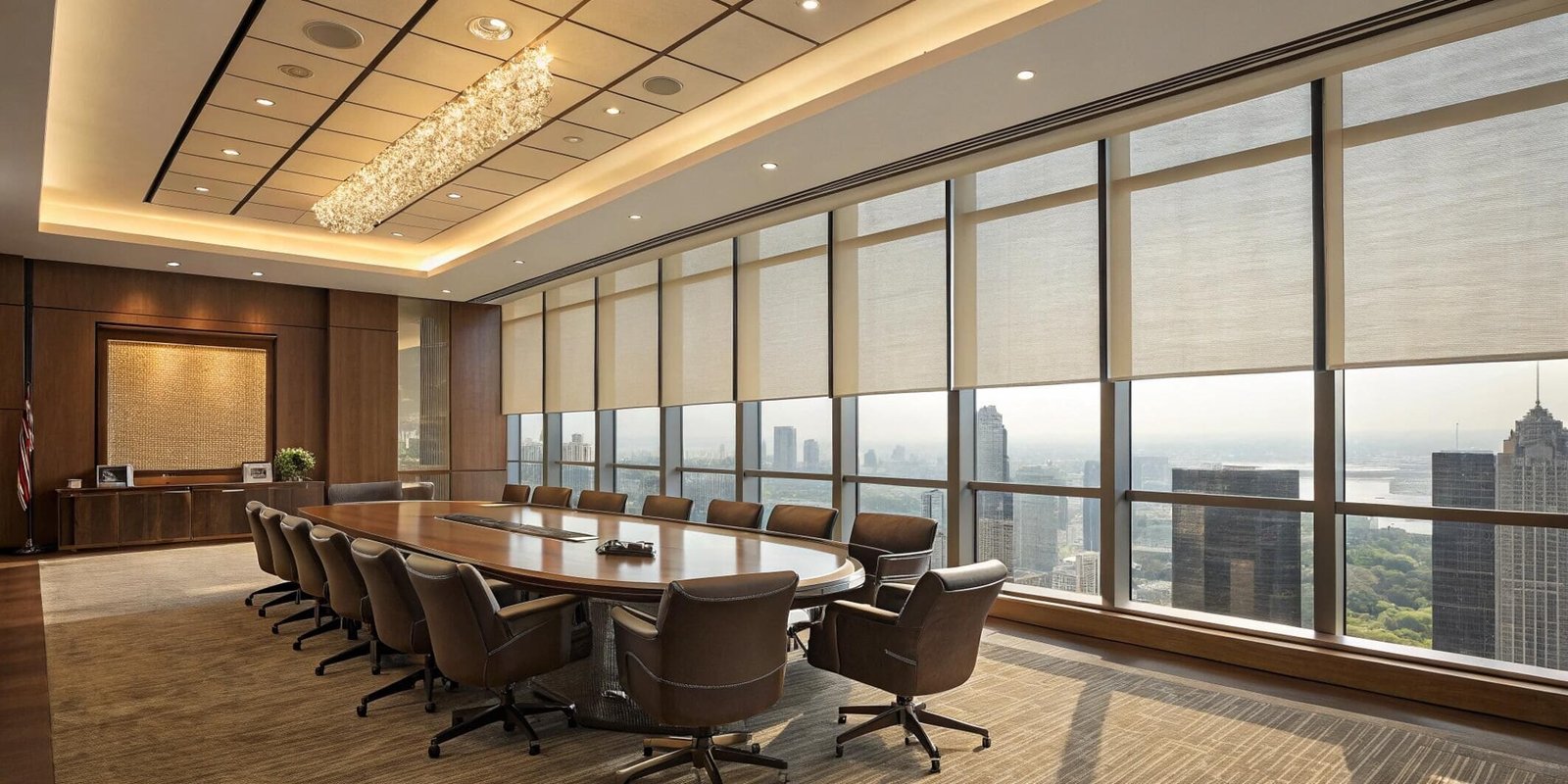After sourcing blinds for over a decade, I've seen countless projects succeed and fail based on one critical decision: choosing between manufacturers and trading companies as suppliers.
Trading companies offer superior communication, flexible MOQs, and comprehensive service packages, while manufacturers provide direct pricing, quality control, and customization capabilities. The optimal choice depends on your project scale, timeline requirements, communication preferences, and risk tolerance rather than a one-size-fits-all approach.

The blinds industry has evolved dramatically. What once seemed like a simple choice between local and overseas suppliers now involves complex decisions about supply chain structure, quality assurance protocols, and long-term partnership strategies.
What are the key differences between sourcing from manufacturers vs trading companies?
Understanding the fundamental operational differences between manufacturers and trading companies determines your project's success trajectory from day one.
Manufacturers operate production facilities and control the entire manufacturing process, while trading companies act as intermediaries between factories and buyers without owning production capabilities. This creates distinct advantages in pricing, quality control, customization options, and service delivery approaches.

The structural differences run much deeper than most buyers realize. Manufacturers typically focus their resources on production efficiency, equipment maintenance, and process optimization. Their sales teams often consist of technical personnel who understand product specifications but may lack the polished communication skills that trading companies cultivate. This technical expertise becomes invaluable when you're dealing with complex custom orders or need to troubleshoot production issues.
Trading companies, conversely, invest heavily in customer service infrastructure, market intelligence, and relationship management. They maintain dedicated account managers, customer service representatives, and logistics coordinators who specialize in managing the buyer experience. Their business model depends entirely on service quality since they cannot compete on manufacturing cost advantages.
Key Operational Structure Comparison:
| Aspect | Manufacturers | Trading Companies |
|---|---|---|
| Primary Focus | Production efficiency | Customer service |
| Staff Expertise | Technical/Engineering | Sales/Relationship management |
| Facility Investment | Production equipment | Office infrastructure |
| Revenue Model | Production volume | Service markup |
| Quality Control | Direct oversight | Supplier coordination |
The decision-making processes also differ significantly. Manufacturers make decisions based on production capacity, material availability, and factory schedules. Trading companies prioritize customer satisfaction, market responsiveness, and maintaining supplier relationships. This fundamental difference affects everything from order prioritization to problem resolution approaches.
Communication patterns reveal another critical distinction. Manufacturers often communicate in technical terms, focusing on specifications, production capabilities, and delivery schedules. Trading companies adapt their communication style to match customer preferences, translating technical details into business-friendly language and managing expectations proactively.
When does a trade company offer better value than direct factory sourcing?
Trading companies excel in specific scenarios where their service-oriented approach and supplier relationships provide advantages that outweigh higher costs.
Trading companies deliver superior value for smaller projects, first-time importers, complex multi-product orders, and buyers requiring flexible payment terms or extensive customer support. Their supplier relationships often enable lower MOQs and faster problem resolution compared to direct factory relationships.

Small to medium projects represent the sweet spot for trading company partnerships. When you're ordering 100-500 units, manufacturers may treat your order as low priority, extending lead times and providing minimal support. Trading companies aggregate multiple small orders to achieve volume pricing with their factory partners, then pass competitive pricing to individual customers while maintaining service quality.
First-time importers benefit enormously from trading company expertise. The learning curve for international procurement involves documentation requirements, customs procedures, quality control protocols, and payment mechanisms. Trading companies have navigated these challenges thousands of times and can guide new buyers through potential pitfalls. I've seen inexperienced buyers save months of delays and thousands in mistakes by leveraging trading company knowledge.
Value Scenarios for Trading Companies:
- Order Volume: 50-1,000 units where manufacturers require higher MOQs
- Product Mix: Multiple product types requiring different suppliers
- Timeline: Urgent orders requiring immediate attention
- Experience Level: First-time importers needing guidance
- Payment Terms: Buyers requiring flexible payment arrangements
- Support Needs: Projects requiring ongoing communication and updates
Complex product specifications also favor trading companies when multiple manufacturing processes are involved. A project requiring roller blinds, motorized systems, and custom hardware might involve three different manufacturers. Trading companies coordinate these relationships, ensuring compatibility, synchronized delivery, and unified quality standards. Managing multiple manufacturer relationships directly requires significant time investment and coordination expertise.
Financial flexibility represents another trading company advantage. Manufacturers typically require strict payment terms and may demand full payment before production. Trading companies often offer more flexible arrangements, accepting partial payments or extending credit terms based on established relationships. This flexibility can be crucial for project cash flow management, especially on larger installations with milestone-based payment structures.
What advantages do trade companies provide for custom blinds projects?
Custom blinds projects present unique challenges that play directly to trading companies' strengths in coordination, communication, and problem-solving.
Trading companies excel at custom projects through their ability to coordinate multiple suppliers, manage complex specifications, provide design consultation, and handle iterative changes throughout the development process. Their experience with diverse custom projects often results in better solutions than single-manufacturer approaches.

Custom projects require extensive communication throughout the development process. Specifications change, samples need approval, and modifications become necessary as projects evolve. Trading companies structure their operations around managing these iterative processes, with dedicated project managers who understand both technical requirements and customer expectations. Manufacturers, focused on production efficiency, may find frequent specification changes disruptive to their workflow.
Design consultation capabilities distinguish experienced trading companies from direct factory relationships. Many trading companies employ designers or maintain relationships with design consultants who can provide valuable input on product selection, color coordination, and functional optimization. This design support often proves invaluable for commercial projects where aesthetic considerations must balance with performance requirements and budget constraints.
Custom Project Advantages:
| Service Area | Trading Company Benefit | Manufacturer Limitation |
|---|---|---|
| Design Input | Professional consultation available | Limited design resources |
| Specification Changes | Flexible modification process | Production disruption concerns |
| Sample Management | Comprehensive sample programs | Basic sample provision |
| Quality Coordination | Multi-supplier quality alignment | Single-source quality focus |
| Timeline Management | Project-based scheduling | Production-based scheduling |
Multi-supplier coordination becomes essential for complex custom installations. A high-end residential project might require blackout cellular shades for bedrooms, solar screens for common areas, and motorized roller blinds for large windows. Each product type may require different manufacturing expertise, but the installation must be coordinated for consistent appearance and functionality. Trading companies manage these relationships, ensuring color matching, hardware compatibility, and synchronized delivery schedules.
Quality assurance for custom projects requires different approaches than standard production. Trading companies develop quality protocols specific to custom work, including sample approval processes, production milestone reviews, and pre-shipment inspections tailored to project specifications. Their quality control systems accommodate the variability inherent in custom work while maintaining consistent standards across different suppliers and product types.
Which sourcing option gives you more flexibility on minimum order quantities?
MOQ flexibility often determines project feasibility, especially for smaller installations or businesses testing new markets.
Trading companies typically offer significantly lower MOQs because they aggregate orders from multiple customers to meet factory minimum requirements. While manufacturers may require 500-1,000 unit minimums, trading companies often accommodate orders as small as 50-100 units through their volume pooling strategies.

The economics behind MOQ flexibility reveal why trading companies can accommodate smaller orders. Manufacturers set MOQs based on production run efficiency, setup costs, and material utilization. A factory might need 1,000 units to justify machine setup and achieve acceptable per-unit costs. Trading companies overcome this barrier by combining orders from multiple customers into single production runs, then distributing products according to individual customer requirements.
Seasonal demand patterns further complicate MOQ considerations. Manufacturers prefer consistent, predictable orders that maintain steady production schedules. Trading companies, serving diverse customer bases, can better absorb seasonal fluctuations and maintain relationships with factories during slower periods. This stability often translates to more flexible terms for individual customers.
MOQ Comparison Analysis:
| Product Type | Typical Manufacturer MOQ | Trading Company MOQ | Flexibility Factor |
|---|---|---|---|
| Standard Roller Blinds | 500-1,000 units | 50-200 units | 5-10x improvement |
| Custom Cellular Shades | 200-500 units | 25-100 units | 4-8x improvement |
| Motorized Systems | 100-300 units | 10-50 units | 5-10x improvement |
| Specialty Fabrics | 1,000+ units | 100-300 units | 3-10x improvement |
Geographic considerations also affect MOQ flexibility. Manufacturers serving global markets may have sufficient volume to maintain lower MOQs, while regional manufacturers require higher minimums to achieve profitability. Trading companies with established global customer networks can often negotiate better terms due to their aggregate volume commitments.
Testing new products or markets becomes much more viable with trading company MOQ flexibility. Rather than committing to large inventory investments, businesses can test market response with smaller initial orders. This approach reduces financial risk and allows for market feedback incorporation before scaling up orders. I've helped numerous clients launch successful product lines using this graduated approach to market entry.
Who offers better international trade expertise: manufacturers or trade companies?
International trade complexity requires specialized knowledge and established systems that significantly impact project success.
Trading companies typically possess superior international trade expertise through their focus on export operations, established logistics networks, customs documentation experience, and multi-market regulatory knowledge. Manufacturers, concentrated on production, often lack the specialized trade infrastructure required for smooth international transactions.

Export documentation represents a major differentiator between manufacturers and trading companies. Trading companies process hundreds or thousands of export shipments annually, developing streamlined systems for commercial invoices, packing lists, certificates of origin, and customs declarations. Their documentation accuracy rates typically exceed 95%, while manufacturers new to export markets may struggle with paperwork requirements, leading to customs delays and additional costs.
Banking relationships and payment mechanisms favor trading companies' international operations. They maintain established relationships with trade finance institutions, understand letter of credit procedures, and can accommodate various payment methods. Manufacturers focused on domestic markets may lack these financial infrastructure elements, creating payment processing delays and increasing transaction costs for international buyers.
International Trade Capability Comparison:
| Trade Function | Trading Companies | Manufacturers |
|---|---|---|
| Export Documentation | Specialized systems, high accuracy | Basic capabilities, learning curve |
| Customs Procedures | Established protocols | Limited experience |
| Shipping Logistics | Multiple carrier relationships | Basic shipping arrangements |
| Trade Finance | Banking partnerships | Limited options |
| Regulatory Compliance | Multi-market knowledge | Domestic focus |
| Risk Management | Insurance and hedging options | Minimal coverage |
Logistics network advantages emerge clearly in international transactions. Trading companies maintain relationships with multiple freight forwarders, shipping lines, and logistics providers, enabling competitive pricing and routing flexibility. They understand port congestion patterns, seasonal shipping constraints, and alternative routing options. Manufacturers typically rely on basic shipping arrangements that may not optimize cost or delivery reliability.
Regulatory compliance expertise becomes crucial as trade regulations evolve. Trading companies monitor tariff changes, anti-dumping investigations, and product certification requirements across multiple markets. They maintain compliance documentation and can advise customers on regulatory implications. Manufacturers focused on production may lack resources to track regulatory changes or understand their impact on international customers.
Currency risk management represents another trading company advantage. They deal with multiple currencies daily and often have hedging strategies or local currency pricing options. Manufacturers may only offer pricing in their domestic currency, transferring currency risk to buyers. This risk transfer can significantly impact project costs, especially during volatile currency periods.
What are the real cost-benefit differences between factory-direct and trade company sourcing?
Cost analysis requires examining total project economics beyond initial pricing, including hidden costs, risk factors, and service value.
Factory-direct sourcing typically offers 15-30% lower unit costs but includes additional expenses for quality control, logistics coordination, and risk management. Trading companies charge 20-40% premiums over factory prices but include comprehensive services that often result in similar total project costs with reduced risk exposure.

Unit pricing represents only the starting point for cost analysis. Manufacturers quote ex-factory prices that require buyers to arrange international shipping, customs clearance, and domestic delivery. These logistics costs can add 15-25% to the base product price, depending on order size and destination. Trading companies typically quote delivered prices that include all logistics costs, providing cost certainty and eliminating surprise expenses.
Quality control investments differ significantly between sourcing approaches. Direct factory sourcing requires third-party inspection services, costing $300-800 per shipment depending on order complexity. Trading companies include quality oversight in their service packages, but buyers sacrifice direct control over quality standards. The trade-off involves cost savings versus quality control flexibility.
Comprehensive Cost Analysis:
| Cost Component | Factory Direct | Trading Company | Difference |
|---|---|---|---|
| Base Unit Price | $12-15 | $15-20 | +25-33% |
| Shipping/Logistics | $2-4 per unit | Included | -$2-4 |
| Quality Control | $300-800 per shipment | Included | -$300-800 |
| Documentation | $200-500 per shipment | Included | -$200-500 |
| Payment Processing | 2-3% of order value | 1-2% | -1% |
| Total Project Cost | Variable | Predictable | Similar |
Risk-related costs often favor trading companies despite higher unit pricing. Currency fluctuations, shipping delays, and quality issues create potential cost overruns in direct factory relationships. Trading companies absorb many of these risks through their service model, providing cost predictability that benefits project budgeting and cash flow management.
Time investment costs frequently get overlooked in sourcing decisions. Direct factory relationships require significant time for communication, coordination, and problem resolution. Trading companies provide dedicated account management, reducing internal resource requirements. For project managers billing $50-100 per hour, time savings can offset service premiums, especially on smaller projects.
Volume economics affect cost differentials significantly. Large orders may justify direct factory relationships despite additional complexity, while smaller orders often achieve better total economics through trading companies. The crossover point typically occurs around 1,000-2,000 units, depending on product complexity and service requirements.
How do lead times and logistics compare for these two sourcing models?
Lead time and logistics performance directly impact project schedules and success, with each sourcing model offering distinct advantages and challenges.
Trading companies typically provide 2-4 weeks shorter lead times through their inventory management and supplier relationships, while manufacturers offer more predictable production schedules but longer overall timelines. Logistics reliability favors trading companies due to their established shipping networks and coordination experience.

Production scheduling differences create the foundation for lead time variations. Manufacturers plan production runs based on capacity optimization and material availability, often requiring 4-6 weeks for standard products and 6-10 weeks for custom orders. Trading companies maintain relationships with multiple suppliers and may carry inventory for popular products, enabling 2-4 week delivery for standard items and 4-6 weeks for custom work.
Inventory strategies distinguish the two approaches significantly. Trading companies often maintain stock for popular sizes and colors, enabling immediate shipment for matching orders. They aggregate demand forecasts from multiple customers to optimize inventory investments. Manufacturers typically operate on make-to-order models, minimizing inventory investment but extending delivery times.
Lead Time Breakdown Analysis:
| Timeline Component | Manufacturer Direct | Trading Company | |
|---|---|---|---|
| Order Processing | 1-2 days | Same day - 1 day | |
| Production Queue | 1-3 weeks | Immediate - 2 weeks | |
| Manufacturing | 2-4 weeks | 2-4 weeks | |
| Quality Control | 2-5 days | 1-3 days | 1-2 days |
| Shipping Coordination | 3-7 days | 1-3 days | |
| Total Lead Time | 6-14 weeks | 3-8 weeks |
Logistics coordination represents a major operational difference between the two models. Trading companies maintain dedicated logistics teams who understand shipping routes, carrier capabilities, and customs procedures. They leverage volume relationships with freight forwarders to secure priority booking and competitive rates. Manufacturers may rely on basic shipping arrangements that lack the sophistication and reliability of professional logistics operations.
Seasonal variations affect lead times differently for each model. During peak shipping seasons, manufacturers may struggle to secure adequate shipping capacity, extending delivery times unpredictably. Trading companies, with established carrier relationships and volume commitments, typically maintain more consistent shipping performance throughout the year.
Emergency order capabilities favor trading companies significantly. When projects require rush delivery, trading companies can often accommodate urgent requests through their inventory systems and premium shipping arrangements. Manufacturers operating on production schedules find it difficult to interrupt established workflows for emergency orders, often requiring substantial premium payments and still delivering longer lead times than trading companies.
Which supplier type ensures smoother communication and reliable trade support?
Communication quality and trade support reliability determine the day-to-day partnership experience and problem resolution effectiveness.
Trading companies excel in communication and trade support through dedicated account management, standardized customer service processes, and English-language proficiency. Manufacturers often struggle with communication barriers, limited customer service infrastructure, and focus on production rather than customer relationship management.

Language capabilities create fundamental communication differences between manufacturers and trading companies. Trading companies invest heavily in English-speaking staff and cultural training to serve international markets effectively. Their sales teams understand Western business practices, communication preferences, and decision-making processes. Manufacturers, focused on production efficiency, may have limited English capabilities and unfamiliarity with international business customs.
Response time expectations differ significantly between the two models. Trading companies typically respond to inquiries within 2-4 hours during business hours and maintain 24-48 hour maximum response commitments. Manufacturers may take 1-3 days to respond to customer inquiries, especially during busy production periods when technical staff handle both production and customer communication responsibilities.
Communication Performance Metrics:
| Service Aspect | Trading Companies | Manufacturers |
|---|---|---|
| Response Time | 2-4 hours typical | 24-72 hours typical |
| Language Proficiency | Professional English | Basic to intermediate |
| Account Management | Dedicated managers | Shared technical staff |
| Problem Resolution | Standardized processes | Ad-hoc approaches |
| Documentation Quality | Professional formatting | Basic technical documents |
| Cultural Understanding | International business focus | Production-focused perspective |
Problem resolution approaches reveal stark differences in customer service philosophy. Trading companies develop standardized problem-solving protocols, escalation procedures, and customer satisfaction tracking systems. They understand that customer retention depends on service quality and invest accordingly in support infrastructure. Manufacturers may lack formal customer service processes, handling issues on a case-by-case basis without systematic follow-up or resolution tracking.
Documentation quality and presentation standards favor trading companies' customer-focused approach. They produce professional quotations, detailed product specifications, and comprehensive installation guides formatted for easy customer use. Manufacturers often provide basic technical documentation sufficient for production but lacking the professional presentation and comprehensive information customers expect for decision-making.
Proactive communication distinguishes trading companies from reactive manufacturer approaches. Trading companies provide regular project updates, shipping notifications, and delivery confirmations without customer requests. They anticipate information needs and communicate proactively to maintain customer confidence. Manufacturers typically communicate only when problems arise or when customers request specific information.
Conclusion
Your supplier choice between manufacturers and trading companies should align with your project requirements, experience level, and risk tolerance rather than following industry assumptions.
Ready to Source Your Next Blinds Project?
Stop navigating supplier decisions alone. Get professional guidance, competitive quotes, and reliable delivery from our established supply network.
Our team has over 15 years of experience helping project buyers choose the right sourcing approach for their specific requirements. Whether you need direct factory pricing for large volumes or comprehensive trading company services for complex projects, we'll connect you with the optimal solution.
Contact us today for your personalized sourcing consultation and detailed quotation: **info@velablinds.com
Extended FAQ Section
What's the minimum order quantity difference between manufacturers and trading companies?
Trading companies typically offer MOQs 5-10 times lower than manufacturers due to their order aggregation strategies. While manufacturers may require 500-1,000 units for standard roller blinds, trading companies often accommodate orders as small as 50-200 units by combining multiple customer orders into single production runs.
This difference stems from production economics and business models. Manufacturers set MOQs based on machine setup costs, material utilization efficiency, and production run optimization. A typical blinds factory needs 500+ units to justify equipment setup and achieve acceptable per-unit costs. Trading companies overcome this barrier by maintaining relationships with multiple customers and coordinating orders to meet factory minimums while serving individual customers with much smaller requirements.
The MOQ flexibility becomes particularly valuable for businesses testing new markets, launching product lines, or managing seasonal demand variations. Rather than committing to large inventory investments, buyers can validate market demand with smaller initial orders, then scale up based on actual performance. This approach reduces financial risk and enables more responsive market strategies.
How much more expensive are trading companies compared to direct factory pricing?
Trading companies typically charge 20-40% premiums over factory-direct pricing, but total project costs often remain similar when including logistics, quality control, and service expenses. The higher unit costs get offset by included services like shipping coordination, quality oversight, documentation handling, and customer support.
Factory-direct pricing appears attractive initially but requires additional investments in logistics coordination, quality control inspections, customs documentation, and risk management. These hidden costs can add 15-30% to base product prices, depending on order complexity and destination requirements. Trading companies include these services in their pricing structure, providing cost predictability and eliminating surprise expenses.
The value proposition extends beyond pure cost considerations to include time investment, risk management, and communication efficiency. Project managers spending 10-20 hours coordinating direct factory relationships may find trading company premiums justified by internal resource savings. Additionally, trading companies absorb risks related to quality issues, shipping delays, and currency fluctuations that could create significant cost overruns in direct relationships.
Which sourcing option works better for custom blinds projects?
Trading companies generally excel at custom blinds projects through their coordination capabilities, design consultation services, and experience managing complex specifications across multiple suppliers. Custom projects require extensive communication, iterative design development, and multi-supplier coordination that align with trading companies' service-oriented business models.
Custom blinds projects often involve multiple product types, specialized hardware, and precise dimensional requirements that may require different manufacturing expertise. A luxury residential project might need blackout cellular shades, solar screens, and motorized roller blinds with matching aesthetics and compatible control systems. Trading companies coordinate these relationships, ensuring color consistency, hardware compatibility, and synchronized delivery schedules.
Design consultation capabilities distinguish trading companies from manufacturer relationships. Many trading companies employ design professionals or maintain partnerships with design consultants who can provide valuable input on product selection, color coordination, and functional optimization. This design support proves particularly valuable for commercial projects where aesthetic considerations must balance with performance requirements and budget constraints. Quality assurance for custom work requires specialized protocols including sample approval processes, production milestone reviews, and pre-shipment inspections tailored to project specifications.




